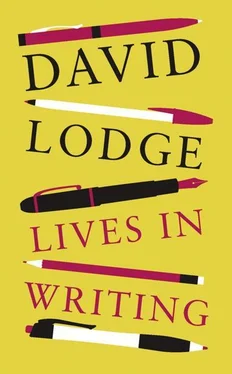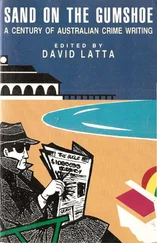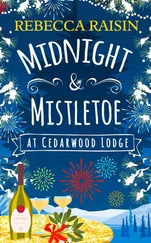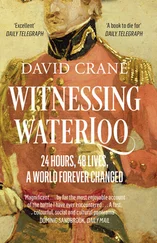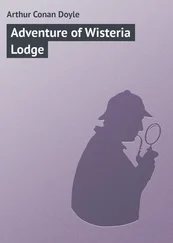Spark’s later life was marred by illness and painful disability partly caused by incompetent medical care, which she endured with remarkable fortitude. She was less tolerant of what she considered harassment by her son, Robin, who accused her of denying her Jewish lineage and impugning his own by claiming that she was only ‘half-Jewish’. The issue turned on the exact nature of her maternal grandmother’s marriage, and the evidence, according to Stannard, is capable of different interpretations. Sadly this dispute permanently alienated mother and son, and brought Muriel some unfavourable publicity in Britain’s scandal-hungry press, which continued after her death in 2006 when it was revealed that she had cut Robin out of her will.
She was, it must be admitted, a difficult as well as fascinating woman to know personally or professionally. She was mercurial in temperament, restless and demanding, quick to take offence, chameleon-like in appearance, and capable of seeming to be two different women on successive days, as I discovered myself on the only occasions when I met her, one weekend in Rome in 1974, halfway through an Italian lecture tour for the British Council. The first was a supper given by the head of the council’s Roman office, when I was seated next to her. She was plainly dressed in a navy blue trouser suit which gave her (at that time) slender frame a gamine appearance, and was deferential to my academic status, though apparently unaware that I also wrote novels. More than once in the conversation, however, she claimed to know things which she had previously denied knowing. She had read my essay about The Prime of Miss Jean Brodie , and appreciated it, and also mentioned with satisfaction Frank Kermode’s praise for her work — the approbation of academic critics evidently meant a lot to her. She told me that she had just finished a novel called The Abbess of Crewe based on Watergate, which she thought would be her best. (It was not.) The next evening I was invited to a large party at her apartment where she was transformed into a glamorous hostess, wearing a flowing robe and with a bouffant hair-do, moving among her guests with regal aloofness, and I had little opportunity to speak to her. Some acquaintances regarded her as a kind of white witch gifted with preternatural insight. Most found her eccentric and unpredictable, and some thought she was a little mad — an insinuation which, if she ever heard of it, would cause their excommunication from her friendship. Some of those character traits pervade her fiction, which is challenging rather than ingratiating. But as the heroine of Loitering with Intent , a portrait of the young Muriel Spark as aspiring writer, observes: ‘I wasn’t writing poetry and prose so that the reader would think me a nice person, but in order that my sets of words should convey ideas of truth and wonder.’ That aim the mature Spark triumphantly achieved.
1 Muriel Spark: the Biography (2009).
I HAVE A personal reason to feel very grateful to the film director John Boorman. In 1981 I was making notes for a comic novel about academics and writers jetting about the world to attend international conferences. I could think of plenty of amusing episodes and situations and representative character-types, including several from an earlier novel, Changing Places , but for a long time I was held up by the lack of a narrative structure to contain them all. In my notebook I wrote, ‘Could some myth serve, as in Ulysses? E.g. , the Grail legend.’ I was thinking of how James Joyce modelled his account of one day in the lives of a number of modern Dubliners on the story of Homer’s Odyssey . But I did nothing with the idea until, a little later, I happened to see Boorman’s film Excalibur , and was swept away by its exuberant and imaginative retelling of the Arthurian story. It set me thinking about correspondences between the Grail legend as it appears in chivalric romance and a modern story of academics and novelists competing with each other for professional glory and getting involved in amorous entanglements in various exotic settings. I started writing Small World .
There are many pleasures to be derived from John Boorman’s autobiography, Adventures of a Suburban Boy (2003), but for me its most interesting revelation was that the legendary quest for the cup used by Jesus at the Last Supper, incorporated by Malory in the Morte d’Arthur , and reinterpreted in modern times by Jessie Weston, T.S. Eliot and John Cowper Powys, among others, has deep roots in Boorman’s own life and psyche, and is the key to his cinematic oeuvre. He read The Waste Land and Powys’s A Glastonbury Romance as a teenager, excited and enraptured by these texts, and they made an enduring impression. His own book’s unassuming title encodes a heroic meaning: a quest for the cinematic Grail, the ultimate transcendent film, was the serial adventure that allowed Boorman to escape the spiritual wasteland of suburbia.
His first childhood home was a semi-detached house in Rosehill Avenue, Carshalton, on the outskirts of London — one of 4 million built between the wars. ‘Four million of them!. . Was there ever such a stealthy social revolution as the rise of this semi-detached suburbia?’ he asks rhetorically. ‘They all missed it, or got it wrong — the academics, the politicians, the upper classes. While they worried about socialism and fascism, the cuckoo had laid its egg in their nests and Margaret Thatcher would hatch out of it.’ Ironically, when he came to re-create his childhood in the Oscar-nominated Hope and Glory , he was obliged to build a simulated Rosehill Avenue on an abandoned airfield, because those streets of inter-war semis have been irrecoverably ‘improved’ — festooned with TV aerials, satellite dishes, double-glazed porches and other accoutrements of post-war affluence.
The Boormans had been affluent once. His paternal grandfather was a cheerfully eccentric inventor and businessman, sufficiently well-off to send his sons to public school, who lost all his money shortly after the First World War. John’s father George came back from interesting military service in India to painfully reduced circumstances, and was obliged to take a clerical job which he hated. He and his friend Herbert were both captivated by Ivy, the beautiful daughter of a Wimbledon publican. George popped the question and won her hand, but Ivy had always secretly preferred Herbert, and as the joy slowly leaked out of her marriage in the confines of Rosehill Avenue she turned increasingly to Herbert for solace. Thus was the triangular relationship of Arthur — Guinevere — Lancelot re-enacted in Metroland. The young John sensed what was going on, and felt guiltily complicit in the betrayal of his father, but George, embittered by the boring routine of his life, did not inspire great filial affection. Sometimes John disloyally wished that Herbert had been his dad.
The outbreak of the Second World War offered a kind of deliverance for all parties from this drab, repressed existence. ‘How wonderful was the war!. . it gave us the essential thing we lacked: it gave us a myth, a myth nurtured by the wireless, newspapers, the cinema, that allowed us semi people to leap our garden gates, vault over our embarrassments into the arms of patriotism.’ George couldn’t wait to join up, though he was forty, but ironically, like many servicemen, found himself posted to safe barracks in the country while the bombs were falling on Rosehill Avenue. ‘We kids rampaged through the ruins, the semis opened up like dolls’ houses, the precious privacy shamefully exposed. We took pride in our collection of shrapnel.’
Читать дальше
